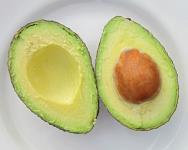Garlic
Garlic has long been known for containing natural antibacterial properties. Prior research has found that eating more garlic is associated with a decreased risk of developing non-cancerous growths in the colon. Garlic contains natural compounds such as selenium and arginine, which have been known to have potential health benefits such as excreting harmful waste from the body. It is important to know how much garlic is good for you, as too much as cause other digestive problems.
Legumes

Legumes are excellent because they are low in fat and packed with protein. They are good for the colon because they provide the good bacteria via their healthy starches. They are also a good source of folate and antioxidants, and phytochemicals. Try to add some kidney beans to your meal the next time you sit down for dinner.
Flax seeds
Flax seeds do not look tasty right away but when added to things like smoothies, cereals, and whole grain products, they can be much more appealing. Flax seeds are packed with fiber and contain phytonutrients. They are great for helping to regulate bowel movements and are also a natural source of omega 3 fatty acids.
Dark leafy vegetables
Dark leafy vegetables that are good for the colon include spinach, collard greens, kale, and romaine. These green vegetables are packed with fiber which helps cleanse your colon. They also contain folate and a variety of vitamins and minerals. However, please remember that not all of these dark leafy greens contain the same amount of nutrients. For example, one cup of iceberg lettuce has almost no nutritional value, and it is mainly made up of water. What to remember when buying dark leafy greens: the darker the leaf the more beneficial it is for your colon and overall health.
Probiotics
Did you know that your entire colon is filled with bacteria and yeast? Good bacteria, that is. Good bacteria and yeast actually help to break down and eliminate waste from the body. They also make sure the bad bacteria stays out. It is important to maintain a good balance of these living organisms, otherwise you may suffer. People who have an imbalance in bacteria in their colon may have problems with digestion such as diarrhea or bloating. In this case, you may need some extra help to get these organisms balanced again. This can be done by getting more probiotics. You can find probiotics in fermented foods, such as yogurt or kefir.



